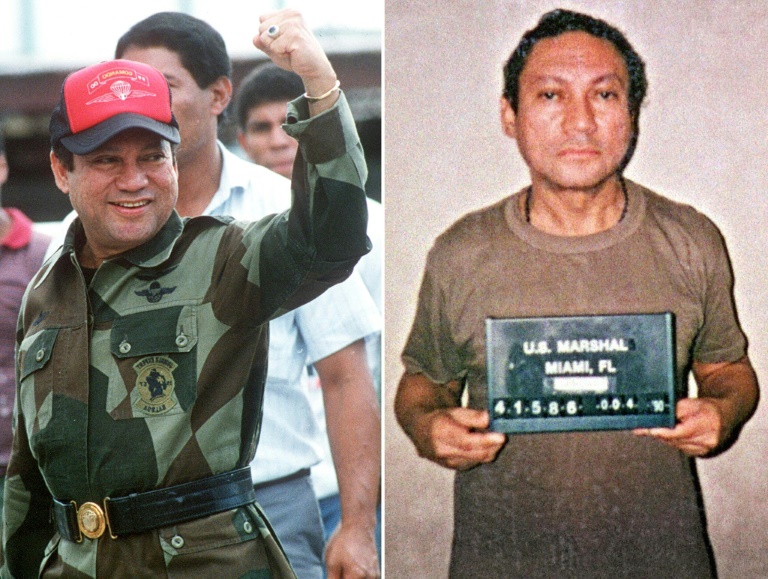Panama’s former dictator Manuel Noriega, who was on the CIA payroll, ousted from power by US troops in 1989, and spent years in prison for drug trafficking and money laundering, has died aged 83, authorities said.
Noriega died in Panama City’s Santo Tomas Hospital where he had been recovering from surgery in March to remove a brain tumor, and a subsequent operation to clean up cerebral bleeding.
President Juan Carlos Varela wrote on Twitter that Noriega’s death “closed a chapter in our history.”
He said the ex-strongman’s family “deserved to bury him in peace.”
Noriega’s lawyer Ezra Angel asked for “respect for his family’s privacy at this painful time.”
He told AFP that Noriega died around 0400 GMT on Tuesday — late Monday in Panama, but gave no details of the cause of death.
He said the burial would be a private family affair and gave no further details.
Noriega had been serving lengthy prison sentences in Panama for murder and forced disappearances during his 1983-1989 dictatorship.
Following years of ill-health that included respiratory problems, prostate cancer and depression, Noriega’s family pleaded with the authorities to let him serve the rest of his sentence under house arrest. But the government rejected their appeals.
– CIA agent to US pariah –
Born in 1934 to a poor family, Noriega entered Panama’s military at a young age and rose through the ranks to become de facto ruler of a country that hosts the strategic Panama Canal.
“I knew Noriega when I was a lieutenant and he was a second lieutenant,” said a former National Guard general Ruben Dario Paredes, a Noriega critic.
He was “very attentive and normal, correct, disciplined, and decent — but when that man reached the rank of general he was definitely someone else. Power disfigured him, corrupted him,” Paredes told AFP.
Noriega was reportedly recruited onto the CIA payroll in 1967, the year before he took part in a 1968 coup against then-president Arnulfo Arias.
Noriega supported one of the coup leaders, General Omar Torrijos, who promoted him to head the feared G-2 military intelligence unit.
In 1983, two years after Torrijos’ death in a mysterious plane crash, Noriega — nicknamed “pineapple face” for his pock-marked visage — took charge of the now-defunct National Guard and became Panama’s de facto ruler.
During his ascent and time in power Noriega juggled work for the CIA along with relationships with Colombian drug lord Pablo Escobar, Cuba’s Fidel Castro and other foreign intelligence services.
But his increasingly brutal rule and his close ties with the drug trade led the United States to seek his ouster.
He was toppled in a December 1989 US invasion, the largest such US military operation since the Vietnam war. He surrendered to US troops in January 1990.
He was flown to the United States where a US court in 1992 convicted him of drug trafficking and money laundering charges and sentenced him to 40 years in prison, although this was later reduced to 30 years.
In 2010 Noriega was extradited to France, where he was convicted of money laundering, then extradited to Panama the following year in poor health.
He had been sentenced in absentia there to prison for political murders and his role in killing soldiers attempting a coup against him.
“In the name of God, I had nothing to do with the death of any of those people,” he said at one hearing. “There was a permanent conspiracy against me, but here I am, unafraid.”
Nevertheless, in 2015 Noriega issued a blanket apology “to anybody who felt offended, affected, prejudiced or humiliated by my actions.”
Campaigners for victims of the military regime say he has taken secrets to his grave.
“After the death of Noriega it is now more difficult to know the truth about all that happened,” Maritza Maestre, president of the Victims’ Committee, told AFP.
Source: AFP



